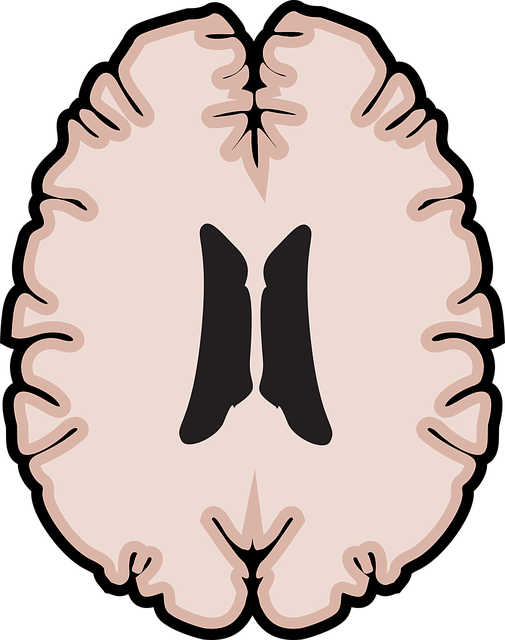Mental health policies, woven from legislation, funding, service delivery, and cultural threads, are crucial for access to emotional well-being support. A nuanced analysis considering diverse demographics, especially vulnerable groups, is key. Strategies like cognitive-behavioral therapy (CBT) and social skills training empower adults in suicide prevention by managing mental health issues and building resilience. Advocacy gives voice to affected individuals, humanizes the issue, and influences policy decisions towards evidence-based practices. Global progress includes community-based interventions, cultural sensitivity, and innovative programs like Mental Wellness Journaling Exercises, fostering robust mental health support worldwide with a focus on therapy for adults in suicide prevention.
Mental health policy analysis and advocacy are vital components in understanding and addressing critical global issues, particularly adult suicide prevention. This article delves into the multifaceted approach required to tackle this growing concern. We explore a comprehensive framework for analyzing mental health policies, highlighting the profound impact of therapy on suicide prevention strategies. Through examining international success stories, we uncover the power of advocacy in shaping effective policies while offering valuable insights and lessons learned globally.
- Understanding Mental Health Policy: A Framework for Analysis
- The Impact of Therapy on Adult Suicide Prevention Strategies
- Advocacy and Its Role in Shaping Effective Suicide Prevention Policies
- Global Perspectives: International Success Stories and Lessons Learned
Understanding Mental Health Policy: A Framework for Analysis

Mental health policies are complex frameworks that shape the availability and accessibility of services for individuals seeking support for their emotional well-being. Understanding these policies involves a critical analysis of various factors, including legislation, funding mechanisms, service delivery models, and cultural contexts. By examining these elements, we can identify gaps in care, potential barriers to treatment, and areas where advocacy efforts can drive positive change.
A comprehensive approach to mental health policy analysis should consider the impact on different demographics, especially vulnerable populations. For instance, evaluating policies related to suicide prevention requires an understanding of risk factors, access to therapy for adults, and the role of self-awareness exercises and coping skills development in emotional healing processes. This strategic analysis is crucial in ensuring that mental health services are inclusive, effective, and aligned with evidence-based practices, ultimately leading to improved outcomes and a more supportive societal environment.
The Impact of Therapy on Adult Suicide Prevention Strategies

Therapy plays a pivotal role in suicide prevention strategies for adults by addressing underlying mental health conditions and fostering resilience. Through various therapeutic modalities, such as cognitive-behavioral therapy (CBT), individuals can develop coping mechanisms to manage distressing thoughts and emotions effectively. CBT helps identify and challenge negative thought patterns associated with suicidal ideation, promoting healthier ways of thinking and behaving. Additionally, therapy provides a safe space for adults to explore and process traumatic experiences, leading to improved emotional regulation and reduced risk factors for suicide.
Social skills training, mental wellness journaling exercises, and compassion cultivation practices are valuable tools within therapeutic frameworks. Journaling allows individuals to introspect and track their emotions, providing insights into triggers and coping strategies. Compassion cultivation teaches empathy and self-kindness, reducing feelings of isolation and promoting a sense of belonging, both crucial in suicide prevention. These evidence-based practices, when integrated into therapy, enhance overall mental wellness and empower adults to take proactive steps towards maintaining their well-being.
Advocacy and Its Role in Shaping Effective Suicide Prevention Policies

Advocacy plays a pivotal role in shaping effective suicide prevention policies by amplifying the voices of individuals affected by mental health crises, particularly those who have experienced or are at risk of suicide. Through advocacy, survivors and supporters can share their stories, raising awareness about the complex nature of therapy for adults suffering from suicidal ideation. This personal aspect is crucial, as it helps to humanize the issue, fostering empathy building strategies that are essential in reducing stigma and improving access to support services.
Mental health advocates work tirelessly to influence policy decisions by providing Crisis Intervention Guidance based on real-world insights and data. Their efforts ensure that suicide prevention initiatives prioritize evidence-based practices, such as comprehensive Stress Management programs, early intervention, and robust support networks. By advocating for these measures, survivors and their allies contribute to the development of policies that not only reduce suicide rates but also enhance the overall quality of life for those facing mental health challenges.
Global Perspectives: International Success Stories and Lessons Learned

The global landscape of mental health policy has witnessed significant evolution, with many countries implementing innovative strategies to address psychological well-being. International success stories offer valuable insights and serve as models for other nations striving to enhance their mental health systems. For instance, some nations have successfully integrated community-based interventions, such as Social Skills Training, which empowers individuals to manage their conditions effectively. These programs often complement traditional therapy for adults, ensuring a holistic approach to suicide prevention and mental wellness coaching.
Lessons learned from international initiatives highlight the importance of cultural sensitivity in policy development. Effective mental health programs must consider local contexts, incorporating traditional healing practices alongside evidence-based therapies. For example, some countries have incorporated Mental Wellness Journaling Exercises into their curricula, fostering self-awareness and resilience among younger populations. These strategies not only improve individual outcomes but also contribute to the development of robust mental wellness coaching programs on a global scale.
Mental health policy analysis and advocacy are vital components in shaping effective suicide prevention strategies. By understanding the complex interplay between mental health policies and their impact on access to therapy for adults at risk, we can identify gaps and implement evidence-based solutions. The global perspective highlights successful stories that emphasize the power of comprehensive policy approaches, offering valuable lessons for improving adult suicide prevention worldwide. These insights underscore the importance of advocacy in navigating the intricate labyrinthine of mental health systems, ultimately fostering a symphony of support for those in need.








